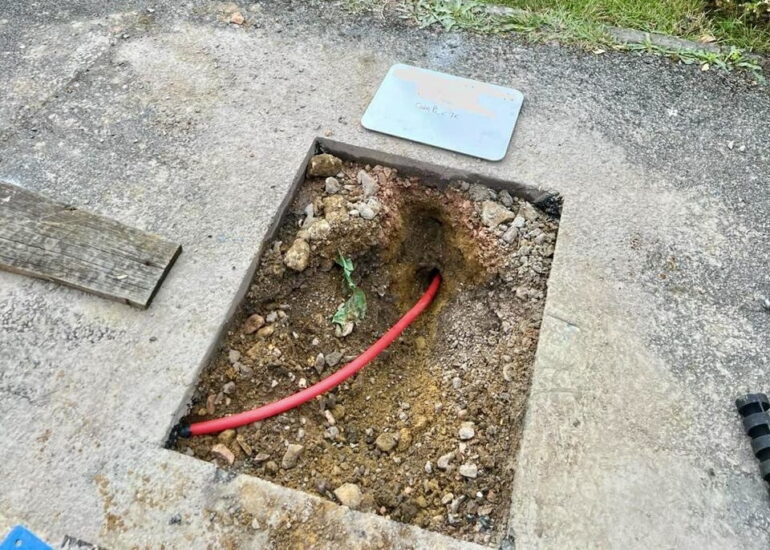A new underground drilling robot developed by Synthotech could significantly accelerate the UK’s rollout of home EV charging by simplifying one of the key infrastructure challenges: connecting homes without disruptive excavation work.
The microBORE system, a compact and high-speed robotic drill, creates narrow, guided pathways under pavements and driveways without the need for costly trenching.
Originally developed from a concept by the University of Surrey for space missions, the system has been repurposed in partnership with BT to lay high-speed fibre and now shows strong potential for EV infrastructure.
Simon Langdale, engineering director at Synthotech, said: “The new drilling technology will significantly reduce the cost and accelerate the execution of key civil engineering tasks, speeding up the delivery of connectivity to homes and driving down installation prices.
“This improvement could accelerate the entire programme significantly, making the robotics solution attractive to infrastructure providers across the UK and internationally.”
According to Lloyds Bank, around 56% of UK homes — equivalent to 16 million properties — are suitable for EV charger installation, primarily due to the availability of off-street parking and supporting electrical infrastructure.
“However, retrofitting the remaining properties is often cost-prohibitive. Experts estimate that 8 to 10 million UK homes could have EV chargers installed by 2035, up from about 350,000 in 2025, if barriers to connection are addressed.
Langdale added: “This is a very exciting application of advanced robot technology that will completely transform the way underground infrastructure is managed and delivered.
“By rethinking how we connect homes to modern utility networks, Synthotech’s futuristic drill could become a ground-breaking solution for the EV revolution, helping millions more drivers plug in from the comfort of their homes.”
The microBORE has already been used in BT’s £15bn Fibre-to-the-Premise rollout and has shown benefits such as reduced carbon emissions, quicker installations, and minimal surface disruption.
These efficiencies are now being explored for use in EV infrastructure, supported by the Surrey Lane Rental Scheme and other innovation partnerships.
This story was first published on our sister site Motor Trade News.



